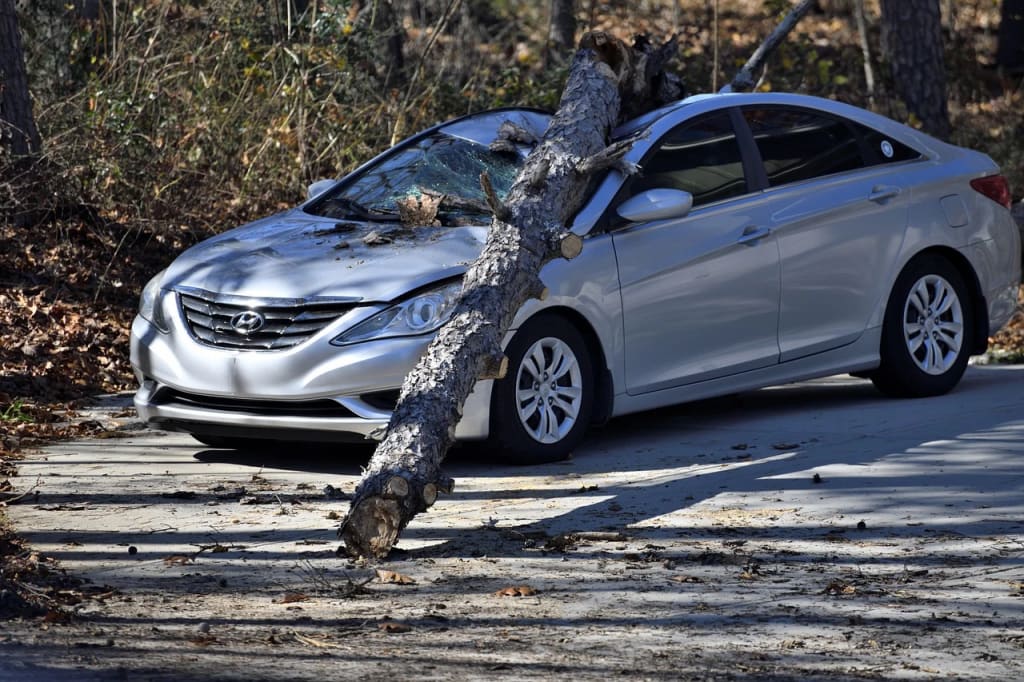From Inspection To Settlement: Understanding the Auto Insurance Appraisal Process
Auto Insurance Appraisal Process

So, you've been in a car accident and are now dealing with the world of insurance companies and claims. It would help if you didn't worry; you are not alone. Navigating the claims process can feel like an uphill battle. Sometimes, your insurance company will give you an estimate far below the total loss of your vehicle damages. This can be frustrating, and you may feel there is no room for dispute. That is where the auto insurance appraisal process comes in. We will go over the basics of what you can expect and the steps to take along the way. So, buckle up because we will walk you through the appraisal process.
What Is An Auto Insurance Appraisal?
Let's start with some basics. What is an appraisal for your auto insurance? It is the process of determining your car's value after damage. Your insurance provider will hire an adjuster to estimate your claim amount. You can enact the appraisal clause if you feel the amount is unfair.
This is a right that you have to help you dispute the insurance claim. Think of it as getting a checkup from a doctor and then going to another doctor for a second opinion, except in this case; vehicle experts are examining your car and the damages. Once the appraisers are done analyzing your car's value vs. the total cost of damages, they will provide an updated amount to help dispute your insurance claim.
Why Is The Appraisal Clause Important?
Dealing with insurance issues can be one of the trickiest problems. There are many legal hoops to jump through, and from the policyholder's perspective, it is complex and confusing. Many people feel they need more room for negotiation with their insurance companies. That is why the right to enact an appraisal is essential. It gives people the right to hire a third-party appraiser to adjust the value of their claim.
The Appraisal Process & Steps To Adjusting Your Claim

Photo By: JESHOOTS.com
The whole process starts with your car receiving damage. This can be from anything but typically comes from an accident. Once your vehicle is damaged, you will work with your insurance provider to assess the value of the loss. This means giving your insurance agent the details of the incident and even getting your car inspected for the cost of repair. The insurance adjuster will then provide an estimated claim for your compensation.
1: Enacting The Appraisal Clause
If you decide that the claim amount does not accurately represent the damages, you can enact the clause. This is the first step in the process. You should, however, weigh your choice carefully. The appraisal process will take time and even cost you some extra money. Ensure that the coverage amount you feel entitled to is viable and will exceed the cost of enacting the appraisal clause.
One way to determine whether you should enact the appraisal process is to work with appraisers to analyze your situation. Companies and independent appraisers can consult with you about your vehicle situation. They are qualified to assist you in choosing whether to start the appraisal process.
If they feel you have a good case, you can proceed. However, should your initial claim be accurate, unfortunately, it is probably in your best interest to move forward with your insurance company's claim amount. Moving forward with an accurate initial claim can cause you to lose money in the long run.
In order to enact the appraisal clause, you will need to inform your insurance company in writing or by other official declaration. Work with your insurance provider and consulted appraiser to provide the needed documentation.
2: Hiring A Competent And Impartial Appraise
Once you have informed your insurance company of your intent to get an additional appraisal, you need to hire your own third-party appraiser. You can typically hire the appraiser you consulted before starting the insurance appraisal process. You will pay the appraiser representing you, so choose carefully. Some things to keep in mind when selecting an appraiser are their qualifications, experience, reviews, and communication with you.
Your insurance company will also hire its own third-party appraiser. They will typically have a company they work with that provides impartial appraisers to help with their side of the process.
3: The Appraisers Investigate The Value Of Loss
When both parties have hired their impartial appraisers, they will start to examine various aspects of determining the total value of loss. Some of the factors they consider are similar to determining the vehicle's resell value.
They will examine the car's condition before the damage, including parts, add-ons, and other valuable features. They will also consider the cost to repair the car and the price of similar vehicles in your local area. They will also consider additional factors that could be surprising to you, such as the color of your vehicle and the popularity of your make, model, and year.
4: The Third-Party Appraisers Collaborate
After both appraisers perform their own investigations, they collaborate and decide the final amount of loss. They compare their personal findings from their calculations and work together to make a final decision. Sometimes, however, they may disagree on the final amount. That is where an umpire appraiser can step in.
4b: The Role Of An Umpire Appraiser
If both appraisers can't agree on the final cost, an umpire appraiser will be hired to settle the dispute. Both appraisers will work together to select an umpire appraiser. This umpire will be hired by both you and your insurance company. As a result, you and your insurance provider will pay the umpire appraiser for their services.
The umpire appraiser will look at the other appraisers' findings and could do their own investigation. Their decision will be final once they have concluded the amount of loss.
5: Getting The Final Amount Of Loss
Whether the two appraisers or the umpire appraiser come to a final cost, that is the amount that will be used in calculating your claim. The final cost of loss is binding on all parties and can't be disputed anymore. Your insurance company will use the appraised amount to determine your adjusted claim.
Conclusion
Even if your insurance company provides an unsatisfactory initial claim amount, there is still room for dispute. The appraisal clause can help you get the true loss value for your vehicle damages. Remember to hire an expert in the auto insurance appraisal process, like KEH consultants, to help you. With a little patience and assistance from qualified appraisers, you can get the true amount of loss from your insurance company.
About the Creator
Enjoyed the story? Support the Creator.
Subscribe for free to receive all their stories in your feed. You could also pledge your support or give them a one-off tip, letting them know you appreciate their work.





Comments
There are no comments for this story
Be the first to respond and start the conversation.